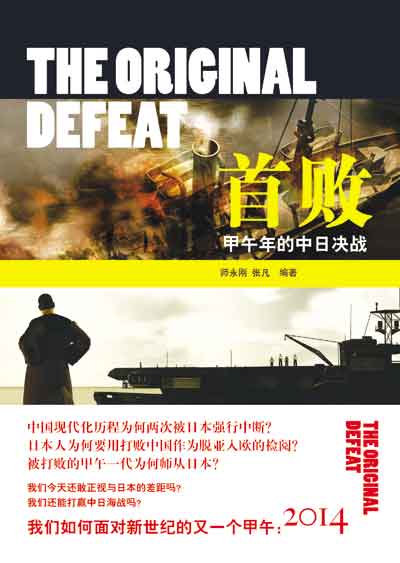National flaws that led to 1895 defeat to Japan still exist today
|
Cover of The Original Defeat. |
The 'China model'
This year is the 100th anniversary of the Revolution of 1911. The roots of the Qing defeat go right back to this subject, Shi believes. "The Opium Wars didn't bring an end to the Qing Dynasty; the Jiawu War, the first huge defeat, did."
Japan's modernized navy decimated the fragmented Qing fleet in a series of naval skirmishes that fractured the country far more deeply than either the Opium Wars or the Anglo-French invasion of 1860, historians believe.
The book tries to explain why China's modernization process was forcibly interrupted by Japan twice and why the Japanese regarded defeating China as a way of breaking away from Asia and keeping up with Europe, asking if China should learn from Japan today.
"As the 120th anniversary of the Jiawu War nears this year, we want to highlight what kind of attitude should the Chinese hold on the defeat and its connection with today's China."
The book is being published during a period of relative calm for the Sino-Japanese relationship, with China's aid to Japan and the Japanese response to their earthquake disaster earlier this year still fresh in people's minds. It has nonetheless attracted much attention and discussion.
According to Shi, most Chinese hold both hatred and misunderstanding toward Japan, while the Japanese are contemptuous of China.
"Both Japanese and Chinese respect winners. Yet the Chinese have no 'right' to hate Japan but should instead learn from [the war] first, because China may not be able to win a war over Japan today.
"We should be most cautious when the 'China model' is hailed as successful and the advantages of our system reaches its peak… [then] it's time to see the opposite side."
A sense of crisis is needed, Shi avers. "We are not that powerful just because we have a little money. Most people are overwhelmed by self-satisfaction and over-confidence in China."
 0
0 








Go to Forum >>0 Comments